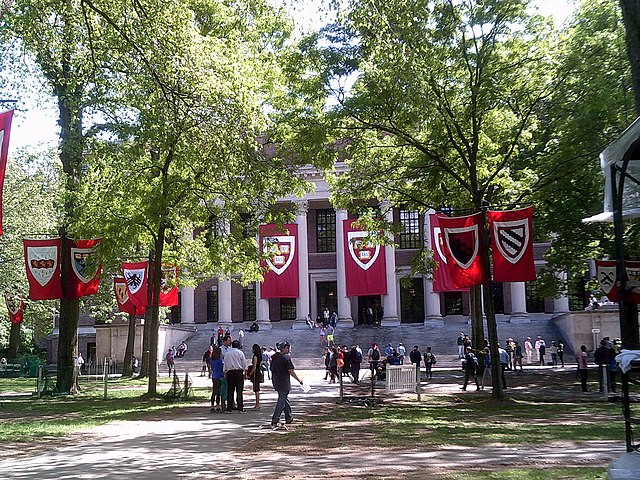A federal judge on Thursday extended a temporary order preventing the Trump administration from revoking Harvard University's ability to enroll international students, escalating an already intense legal and political battle between the White House and one of the country's most prominent academic institutions.
U.S. District Judge Allison D. Burroughs extended the block hours after the Department of Homeland Security issued Harvard a 30-day window to challenge the revocation. The department requested Harvard submit "sworn statements and documentary or other evidence to rebut the grounds for withdrawal of certification," including records of student misconduct and evidence of efforts to "maintain a campus environment free from violence and antisemitism," according to a letter dated May 28.
The revocation targets Harvard's participation in the federal Student and Exchange Visitor Program, which allows the university to admit students from abroad. If upheld, the decision would bar Harvard from enrolling new international students and force existing ones to transfer or risk deportation. Foreign students make up approximately 25% of Harvard's student population.
The court decision coincided with Harvard's 347th graduation ceremony. The administration's effort was temporarily blocked by Judge Burroughs last week just hours after Homeland Security announced the revocation.
Homeland Security Secretary Kristi Noem posted the revocation letter publicly, writing on X: "Harvard's refusal to comply with SEVP oversight was the latest evidence that it disdains the American people and takes for granted U.S. taxpayer benefits." She added, "We continue to reject Harvard's repeated pattern of endangering its students and spreading American hate-it must change its ways in order to participate in American programs."
The conflict arrives amid broader Trump administration efforts to restrict foreign access to U.S. higher education. On Tuesday, NBC News reported that the State Department had suspended new interview scheduling for international student visa applicants and plans to expand social media screening for those seeking F-1 student visas.
Trump also threatened this week to withdraw an additional $3 billion in research grants from Harvard, following an earlier revocation of $2 billion.
Harvard President Alan Garber responded in an interview with NPR on Tuesday: "I'm less concerned about whether it goes to a trade school or if it goes to some other project, like working on highways. What the real question is, how much value does the federal government get from its expenditures on research?"
The dispute stems in part from Harvard's refusal last month to comply with a list of demands issued by the Trump administration's Task Force to Combat Anti-Semitism, which sought to audit faculty hiring and admissions and impose federal oversight on university governance.
The administration's stance has stirred concerns about the broader implications for American science and global competitiveness. Harvard's case is seen as a bellwether for whether the government intends to systematically target elite universities and reshape U.S. higher education by applying "America First" principles to global academic exchange.






